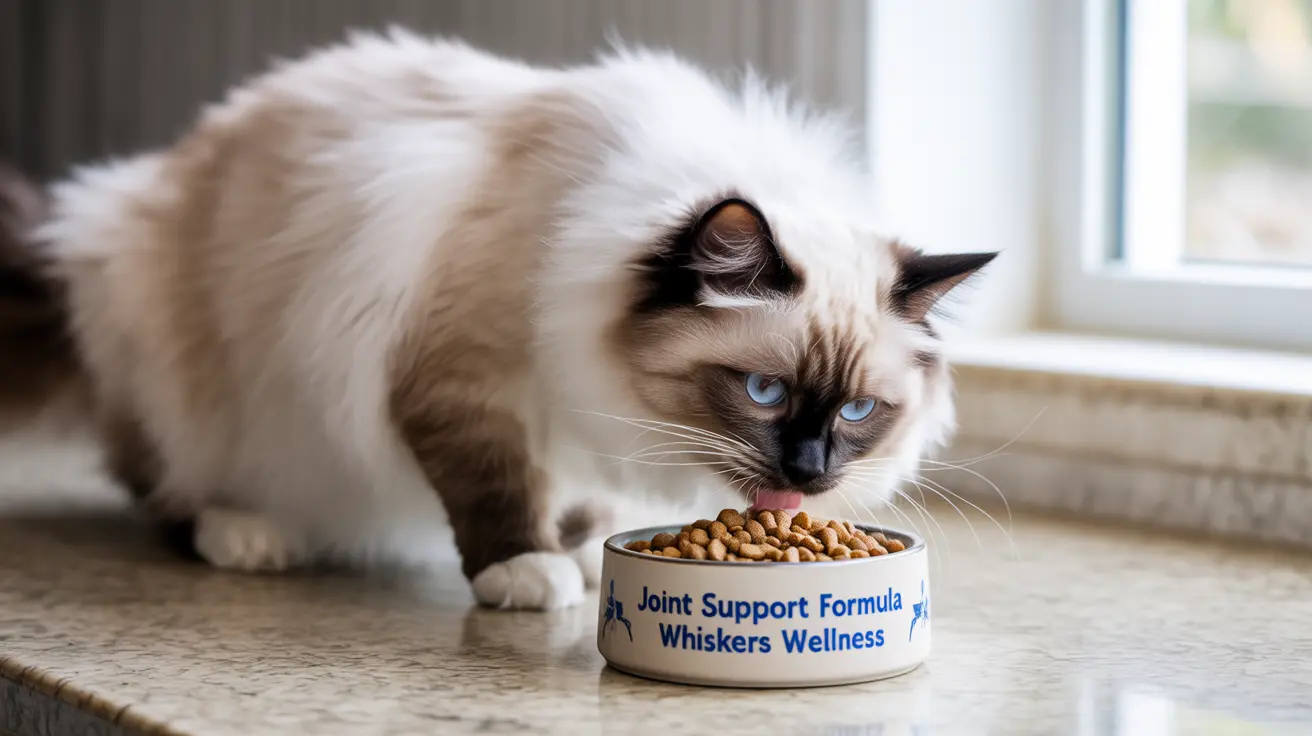When it comes to managing feline arthritis, choosing the right cat food for joint health can make a significant difference in your pet's quality of life. Nearly 90% of cats over 12 years old suffer from arthritis, making proper nutrition crucial for maintaining mobility and reducing discomfort.
In this comprehensive guide, we'll explore the essential nutritional components that support joint health in cats, recommend specific dietary choices, and provide expert guidance on managing arthritis through nutrition.
Essential Nutrients for Healthy Joints
Omega-3 Fatty Acids
Omega-3s, particularly EPA and DHA, play a vital role in reducing joint inflammation. These essential fatty acids, found primarily in fish oil, help decrease pain and improve mobility in arthritic cats. Studies have shown that cats receiving adequate omega-3 supplementation often show noticeable improvements in joint flexibility within 4-6 weeks.
Glucosamine and Chondroitin
These compounds work together to maintain cartilage health and improve joint fluid quality. Natural sources include shellfish and bone broth, though supplements are often necessary to reach therapeutic levels. Most quality joint health cat foods contain added glucosamine and chondroitin in appropriate concentrations.
Selecting the Right Joint Support Diet
Prescription Options
Veterinary prescription diets specifically formulated for joint health contain carefully balanced levels of key nutrients. These foods typically provide higher concentrations of omega-3s, antioxidants, and joint-supporting compounds compared to regular cat food.
Commercial Joint Health Formulas
Many commercial cat food brands now offer joint health formulations that include beneficial ingredients like fish oil, glucosamine, and antioxidants. Look for products that list these ingredients prominently and provide clear information about their concentrations.
Weight Management and Joint Health
Maintaining a healthy weight is crucial for cats with arthritis, as excess weight puts additional stress on already compromised joints. Choose foods that offer:
- Appropriate calorie content
- High-quality protein (minimum 35%)
- Balanced nutrition without excessive fats
- Adequate fiber for satiety
Supplementing Your Cat's Diet
While specialized cat food provides a foundation for joint health, some cats may benefit from additional supplementation. Always consult your veterinarian before adding supplements, which might include:
- Fish oil capsules designed for cats
- Feline-specific joint supplements
- Green-lipped mussel extract
- Natural antioxidant boosters
Frequently Asked Questions
How can I determine if my cat has arthritis and what are the earliest signs to look out for?
Early signs of feline arthritis include reduced jumping ability, difficulty using the litter box, decreased grooming, and stiffness after rest. Watch for changes in your cat's mobility patterns and consult a veterinarian if you notice these symptoms.
What are the best cat foods for joint health, and how do they support arthritis management?
The best cat foods for joint health contain omega-3 fatty acids, glucosamine, chondroitin, and antioxidants. These ingredients reduce inflammation, support cartilage health, and help maintain joint fluid quality. Look for products specifically formulated for joint health or senior cats.
How do omega-3 fatty acids, glucosamine, and chondroitin help cats with arthritis?
Omega-3 fatty acids reduce inflammation, while glucosamine and chondroitin support cartilage health and improve joint fluid quality. Together, these compounds help maintain joint function and reduce pain associated with arthritis.
Can I use human joint supplements for my cat, or are there specific cat supplements I should use?
Always use supplements specifically formulated for cats. Human supplements may contain inappropriate dosages or harmful ingredients. Consult your veterinarian for recommendations on cat-specific joint supplements.
How can I transition my cat to a new diet for joint health without causing digestive upset?
Gradually transition to the new food over 7-10 days. Start by mixing 25% new food with 75% old food, slowly increasing the proportion of new food. Monitor your cat's response and adjust the transition pace if needed.
Conclusion
Choosing the right cat food for joint health is a crucial step in managing feline arthritis. Combined with proper veterinary care and weight management, appropriate nutrition can significantly improve your cat's comfort and mobility. Remember to consult with your veterinarian before making any significant changes to your cat's diet or supplement routine.






